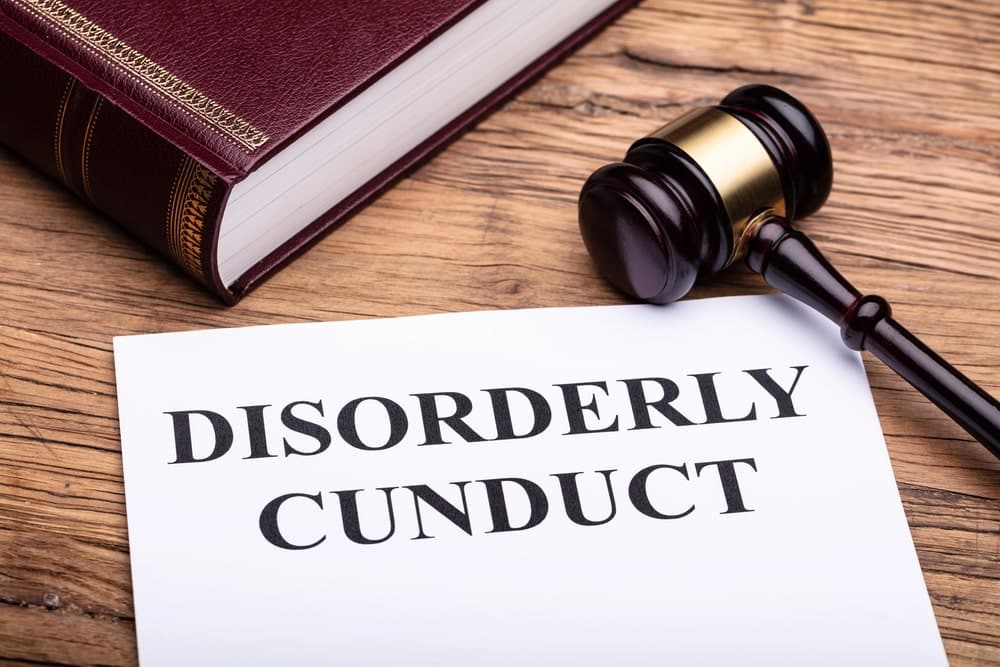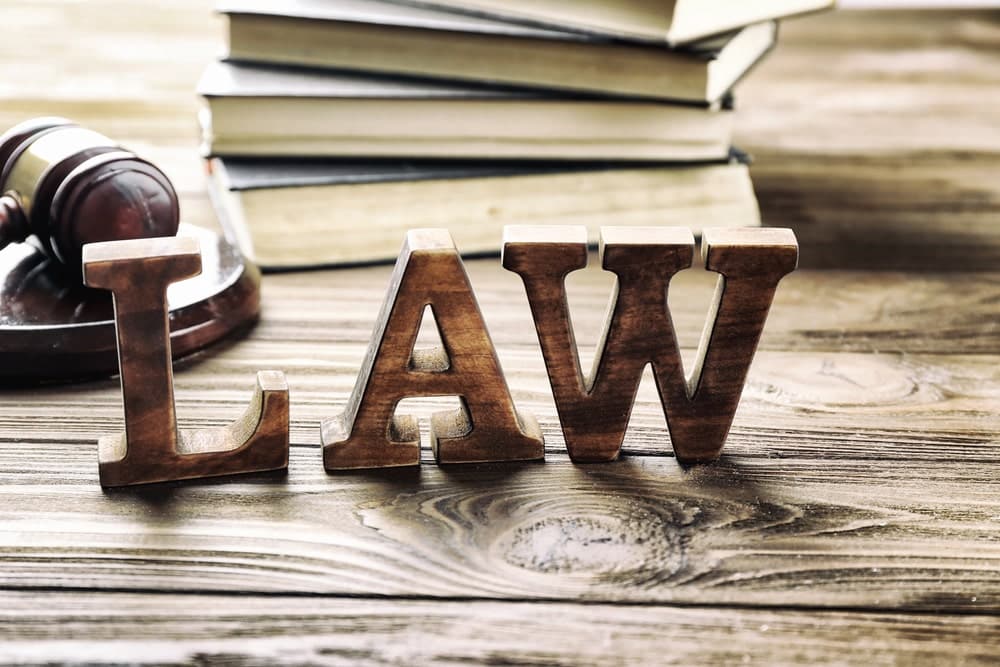Misdemeanors in Maine are classified as Class D or E crimes and felonies are classified as Class A, B, or C crimes.
The penalties for each level of crime increase from Class E up to A—from a maximum of one-year imprisonment to life imprisonment. With such a wide range of potential penalties, it is important to understand what the consequences may be if you are arrested and charged with any criminal offense in Maine.
Crimes come with a set of minimum and maximum penalties (fines and incarceration) outlined in the Maine Criminal Code.
Let us take a closer look at Class D and E misdemeanor crimes and how the sentencing works for these types of offenses in Maine.
Call 207-571-8146 or contact us online to schedule a consult with one of our highly skilled criminal defense & OUI lawyers, serving Southern Maine, today.
Table of Contents
Misdemeanor classifications and penalties in Maine
Class D and E crimes in Maine are punishable by up to one year in county jail, as well as significant fines.
Elevated penalties may apply to aggravated versions of the crimes or for repeat offenders where the offense is considered more serious than the “standard” offense and is elevated to the next class above.
Class E misdemeanor offenses
A Class E crime is the least serious misdemeanor offense in Maine. However, any criminal offense can have far-reaching implications for your future because of the potential for jail time, as well as a lifelong criminal record.
Class E misdemeanors in Maine are punishable by up to six months in jail and a fine of up to $1,000 in Maine. Some typical examples of Class E misdemeanors are the following:
- Operating on a suspended license
- Disorderly conduct
- Theft under $1,000
- Low-level drug offenses
- Online harassment
- Prostitution
Class D misdemeanor offenses
A Class D crime is still a misdemeanor in Maine but a more serious offense than Class E. The following are a few examples:
- Domestic violence assault
- OUI /DUI/DWI (drunk driving)
- Violation of a protective order
- Simple assault
- Unauthorized use of a vehicle
Class D crimes are punishable by up to 364 days in county jail and a fine of up to $2,000 in Maine.
What are “elevated penalties” for misdemeanors in Maine?
Elevated penalties may be applicable for some Class D and E crimes, particularly if dangerous weapons were used in the commission of a crime or if the individual has previous criminal convictions.
In such cases, a Class E crime may become a Class D crime or, even more seriously, a Class D misdemeanor becomes a Class C felony (which involves a large step up in maximum penalties).
Certain misdemeanor offenses can be charged as felonies if the offender has several prior convictions. For instance, while OUI is usually prosecuted as a Class D misdemeanor for a first or second offense, a subsequent offense may be charged as a Class felony.
Similarly, a misdemeanor theft offense becomes a Class C felony offense if the person has two or more prior theft-related convictions.
Call 207-571-8146 or contact us online to schedule a consult with one of our highly skilled criminal defense & OUI lawyers, serving Southern Maine, today.
How does misdemeanor sentencing work in Maine?
Jail time is possible for any Class D or Class E crime, and the judge can impose this immediately upon conviction (unlike a felony, where a separate sentencing date is usually arranged).
However, first-time offenders with seasoned legal representation can usually avoid jail time for misdemeanor crimes that do not come with mandatory sentences.
The likelihood of jail time—even for misdemeanors in Maine—increases for defendants who have two or more prior convictions.
Judges in Maine have several sentencing options available to them. The penalties handed down for a conviction will depend greatly on the strength of your defense.
When considering sentencing options, judges will typically look at the following factors:
- The nature and seriousness of the offense
- Whether any aggravating circumstances applied to the offense (e.g., using a deadly weapon)
- Whether any mitigating circumstances are present (e.g., acting to protect someone else)
- The defendant’s age, character, and criminal history
- Any other relevant factors
Alternatives to jail time with misdemeanor sentencing
Because judges have so much discretion when sentencing misdemeanors in Maine, it is essential to present the best defense possible to mitigate the consequences for the future.
Judges may elect to hand down a sentence that involves imprisonment. Class D and E crimes are usually served in county jail rather than state prison. However, one of the following alternative sentencing measures may also be considered by judges:
- Suspended or split term of imprisonment with probation or administrative release
- Deferred disposition
- Payment of fines and fees
- Payment of restitution
- Community service
In some counties, diversionary court programs are available as well. Under these programs, a defendant can prevent jail time by seeking treatment for substance abuse, mental health issues, or another issue that is deemed to have contributed to the criminal behavior.
What is a split or suspended sentence in Maine?
A split or suspended sentence means that the judge sentences the offender but does not yet impose the jail time (or a portion of it) normally served.
If the offender complies with all of the conditions stated for release on probation or administrative release for a stated period, the suspended sentence can then be revoked. If the terms of release are violated, the offender can be re-arrested and sent to jail.
Typical terms for release on probation or administrative release include:
- Obeying the law and not re-offending
- Attending treatment or counseling
- Maintaining or pursuing employment
- Reporting to a supervisor (for probation)
- Not drinking alcohol
These measures are seen as helping to rehabilitate the offender rather than simply sending him/her to jail, which is not always viewed as the best solution. A judge is more likely to order an alternative sentencing measure like this for a first offense.
What is deferred disposition?
Deferred disposition is sometimes used by prosecutors and criminal defense lawyers in plea bargaining for misdemeanors in Maine. In return for a guilty plea from the accused, the court delays entering the sentence for a set period during which the defendant must comply with court-ordered terms.
If the accused has complied with all the terms of the deferred disposition after the period has elapsed, the individual may be permitted to withdraw the guilty plea and the charges are then dismissed. This results in no criminal conviction for the defendant, which can be especially important for their future.
If the defendant fails to comply with the terms of the deferred disposition, the judge may proceed with imposing a criminal sentence.
A criminal conviction, even for a misdemeanor, can have serious consequences, but a Class D or E criminal charge—especially for first-time offenders—need not end in jail time and a lifelong criminal record.
For experienced legal help with any criminal charge, call the Maine Criminal Defense Group at 207-571-8146 for an initial case evaluation.
Call 207-571-8146 or contact us online to schedule a consult with one of our highly skilled criminal defense & OUI lawyers, serving Southern Maine, today.
Blog Articles

If you receive a traffic ticket in Maine, you may be facing far more than demerit points or an administrative penalty. You could be facing criminal sanctions and a permanent[...]

In Maine, disorderly conduct laws effectively make disturbing the peace a criminal offense. While disorderly conduct is considered one of the least serious offenses under Maine’s Criminal Statutes, it can[...]

Any criminal charge for a drug-related offense is a serious matter in Maine,but how consequential the outcomes can get may depend on whether the charge is filed at the state[...]


Self-defense laws in the U.S. are complex, vary from state to state, and are often misunderstood. “Stand your ground” laws allow an individual to use deadly force in self-defense in[...]

Every day in Maine, people are charged with crimes that they did and did not do. Fortunately, in the U.S., we have a justice system that says you’re innocent until[...]

Expungement is the practice of legally erasing or striking out documents or information relevant to criminal charges. It’s not possible to expunge a criminal record in Maine. However, other avenues[...]

If you have been arrested or are under investigation for a crime in Maine, it is crucial to retain the services of a competent and experienced criminal lawyer. A criminal[...]

Bail Code in Maine Title 15, Chapter 105 of the Maine Revised Statutes governs all issues pertaining to bail in Maine. When a defendant has been arrested and charged with[...]

In the span of less than 5 decades, computers have utterly transformed our society. Those of the baby boomer generation will be able to appreciate the scale of this transformation[...]


